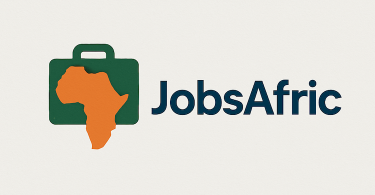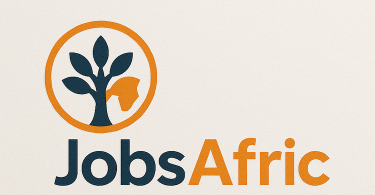The job interview is your chance to shine and show why you’re perfect for the position. It goes beyond just answering questions; it’s about sharing your story in a compelling way, showing off your abilities, and connecting with the person interviewing you. When you prepare properly, you can turn those nervous butterflies into confident energy and make an impression that lasts. This guide walks you through tested strategies for getting ready for and succeeding in job interviews, from handling typical questions to using the STAR method effectively.
Getting to Know Different Types of Interviews
Interviews can happen in many ways: face to face, over video calls, by phone, with multiple people at once, or focused on behavioral situations. Each type needs a slightly different approach, but your main goal stays the same: convince the employer that you’re exactly who they need. Before your interview, research the company’s mission, recent projects, and workplace culture using their website, LinkedIn, or news stories. This preparation shows you’re serious about the opportunity and helps you tailor your answers to match what they value.
Getting Ready for Standard Questions
Hiring managers typically ask similar questions to see if you’re a good fit. Here’s how to handle some of the most common ones:
“Tell me about yourself.” Create a brief summary lasting about 60 to 90 seconds that covers your background, biggest accomplishments, and why you’re interested in this specific role. You might say: “I’m a data analyst with three years of experience making business processes work better, including one project that improved efficiency by 15%. I love using data to help make smart decisions and I’m really excited about how [Company] takes such an innovative approach to [Industry].”
“What’s your greatest strength?” Pick a strength that matters for the job and support it with a real example. For instance: “My biggest strength is solving problems. In my last position, I simplified a reporting process that saved our team 10 hours every week.”
“Where do you see yourself in five years?” Connect your career goals with where the company is headed. Try: “I want to develop as a marketing strategist, leading campaigns that make a real difference, and I’d love to help [Company] grow in [Market].”
Practice giving clear, confident answers, but don’t sound like you memorized a script. Try recording yourself or practicing with a friend to improve how you come across.
Using the STAR Method for Behavioral Questions
Behavioral questions like “Tell me about a time you faced a difficult challenge” want to understand how you’ve handled situations in the past. The STAR method (Situation, Task, Action, Result) helps you organize clear, powerful answers:
Situation: Explain the background. “When I was working as a project coordinator, our team had a very tight deadline for an important client project.”
Task: Describe what you needed to do. “My job was to make sure we finished everything on time.”
Action: Explain the steps you took. “I rearranged our priorities, assigned tasks to team members, and started having daily check ins to keep everyone on track.”
Result: Share what happened. “We finished the project two days ahead of schedule and got a 95% satisfaction rating from the client.”
Prepare 3 to 5 STAR stories that demonstrate skills like working with others, leadership, and problem solving. You can adapt these stories to fit different questions during your interview.
Doing Well in Technical Interviews
If your role requires specific technical skills (like coding or engineering), expect hands on challenges such as coding tests or case studies. Practice using platforms like LeetCode, HackerRank, or case study guides that relate to your field. During the interview, explain your thinking process out loud to show how you solve problems, even if your answer isn’t perfect. If you get stuck, ask questions for clarification; this shows you’re curious and can work well with others.
Making Connections and Staying Confident
Interviews are just as much about connecting with people as they are about showing your skills. Smile, make eye contact (or look directly at the camera for video interviews), and use a friendly but professional tone. Ask thoughtful questions like, “What does success look like in this position?” or “How does the team work together on [specific type of project]?” This demonstrates genuine interest and helps you figure out if the role is right for you.
To calm your nerves, try deep breathing or visualization exercises before the interview starts. Show up early (or log in 5 minutes early for video calls) to demonstrate punctuality and avoid last minute stress.
Succeeding in Video Interviews
Video interviews need some extra preparation. Test all your technology (camera, microphone, and internet connection) well before your interview time. Find a quiet, well lit space with a clean background. Keep notes with important points or STAR stories nearby, but don’t depend on them too much. Dress professionally completely, since you might need to stand up or move around during the call.
Dealing with Challenging Questions
Questions like “What’s your biggest weakness?” can feel tricky, but you can turn them into opportunities to show growth. For example: “I used to have trouble delegating work to others, but I’ve learned to trust my team more and now I use clear communication to make sure we’re all on the same page, which has improved our project results by 20%.” Stay away from overused answers like “I’m a perfectionist” and show that you understand yourself well.
When asked about salary expectations, research typical pay rates using tools like Glassdoor or Payscale. Give a range based on your experience and the specific role: “From my research, I’d expect somewhere between $60,000 and $70,000, but I’m happy to discuss this based on the complete benefits package.”
Following Up After Your Interview
Within 24 hours, send a brief thank you email to everyone who interviewed you. Express your continued interest and mention something specific from your conversation: “I really enjoyed talking about [Company’s] approach to [Topic]. I’m excited about the chance to help with [specific goal].” This keeps you fresh in their minds and shows your genuine interest in the position.
Staying Away from Common Mistakes
Don’t talk too long: Keep your answers to 1 or 2 minutes unless they ask for more details.
Don’t speak negatively about previous employers: Focus on what you learned, even from difficult situations.
Don’t go in unprepared: Lack of preparation is obvious. Practice your answers and research the company thoroughly.
Your Moment to Shine
An interview is your opportunity to stand out by combining good preparation, your personality, and professionalism. When you research the company, practice the STAR method, and build connections with your interviewers, you can transform a scary experience into a confident conversation. Think of each interview as a discussion between equals, not an interrogation, and let your unique story be the main focus. With these strategies, you’re not just participating in interviews; you’re mastering them.





Leave a Comment